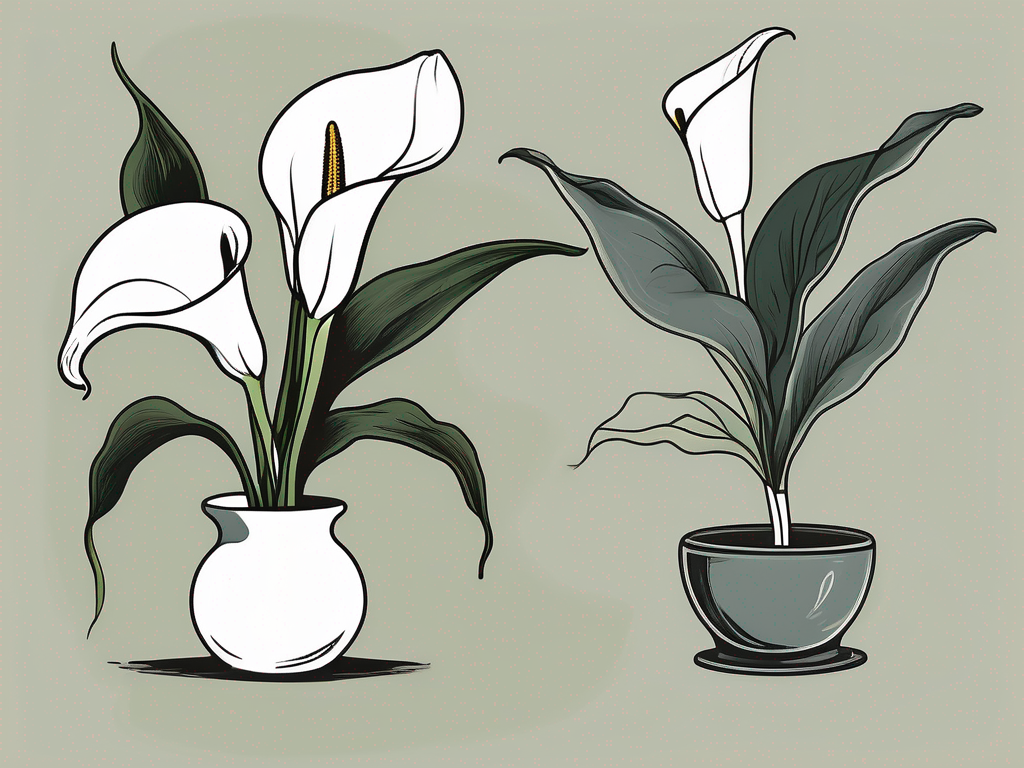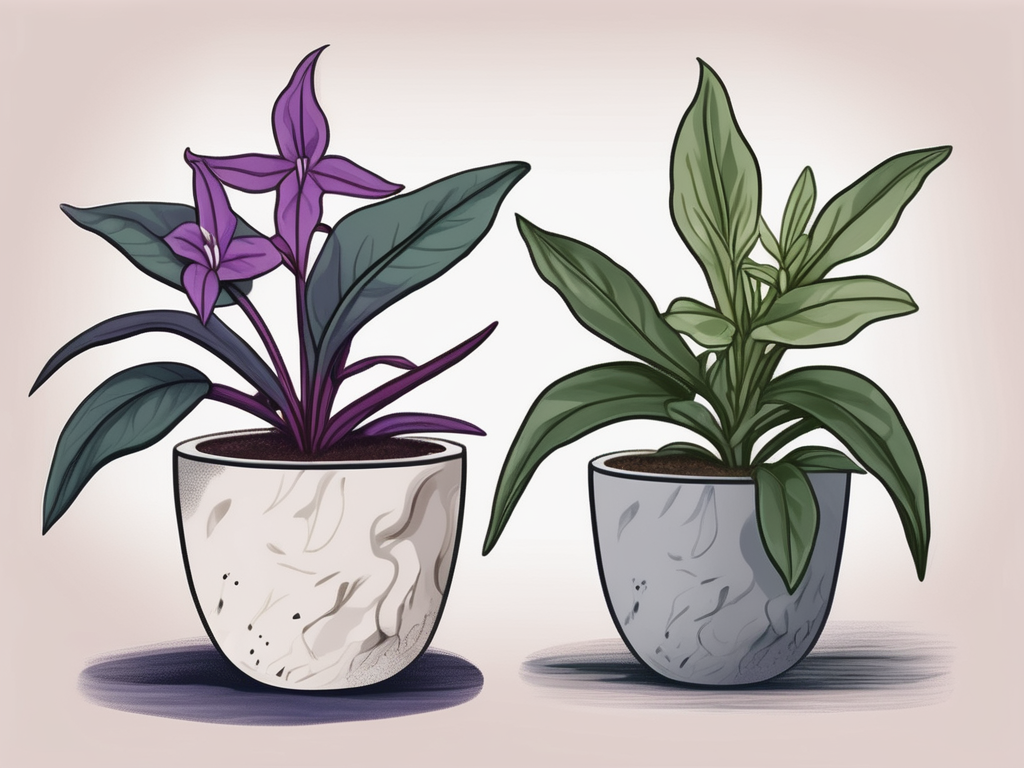
Aglaonema plants, also known as Chinese Evergreens, are a delightful addition to any home. With their stunning foliage and low-maintenance nature, they’re perfect for both seasoned plant people and beginners alike. But, like all houseplants, they need a little extra care to thrive, and that's where choosing the right fertilizer comes into play.
This article will delve into everything you need to know about fertilizing your Aglaonema. We’ll cover the types of fertilizers that work best, how often to feed your plant, and some common pitfalls to avoid. So, whether you're a new Aglaonema parent or looking to give your plant a little more love, read on for some helpful tips and insights.
Understanding Aglaonema's Nutritional Needs
Before you start fertilizing, it’s important to understand what your Aglaonema needs to stay healthy. These plants aren't particularly demanding, but like most living things, they require a balanced diet of nutrients to develop properly. The three primary nutrients you’ll hear about are nitrogen (N), phosphorus (P), and potassium (K), often referred to as NPK.
- Nitrogen (N): Vital for leaf growth and overall vigor. It helps your plant develop lush, green foliage.
- Phosphorus (P): Supports root development and flowering. While Aglaonemas are more about foliage, healthy roots are crucial.
- Potassium (K): Important for the plant's overall health, improving disease resistance and water regulation.
In addition to these, Aglaonemas also need trace elements like calcium, magnesium, and sulfur. Luckily, most balanced fertilizers include these. The aim is to provide a well-rounded diet that supports all aspects of growth, keeping your plant green and healthy.
Choosing the Right Fertilizer
So, what kind of fertilizer should you choose for your Aglaonema? The market is flooded with options, but not all are created equal. Here’s a breakdown of the main types of fertilizers you might consider:
1. Liquid Fertilizers
Liquid fertilizers are popular because they're easy to use and quickly absorbed by plants. You simply mix them with water and apply them during your regular watering routine. Look for a balanced 20-20-20 NPK ratio for Aglaonemas. These fertilizers work well because they allow you to control the amount and frequency of feeding more precisely than other types.
2. Granular Fertilizers
Granular fertilizers are another option. These are sprinkled on the soil and gradually dissolve, releasing nutrients over time. They’re convenient if you prefer a less frequent feeding schedule. However, make sure to follow package instructions carefully, as over-application can harm your plant.
3. Slow-Release Fertilizers
These are perfect for plant parents who want a set-it-and-forget-it approach. Slow-release fertilizers come in pellet form and are mixed into the soil. They break down slowly, feeding your plant over several months. This method reduces the risk of over-fertilizing but might not be as effective if you need to quickly address nutrient deficiencies.
Choosing a fertilizer often depends on your lifestyle and how hands-on you want to be with your plant care routine. All these options can work well for Aglaonemas if used properly.
When and How Often to Fertilize
Timing is everything when it comes to fertilizing. Aglaonemas, like many houseplants, have a growing season during the warmer months. This is typically spring and summer, when they’re actively growing and can use the extra nutrients.
Here's a simple schedule to follow:
- Spring: Start fertilizing as the days get longer. Every 4-6 weeks is a good rule of thumb.
- Summer: Continue fertilizing every 4-6 weeks. Your plant is in full growth mode now.
- Fall: As growth slows down, taper off fertilizing to every 8-10 weeks.
- Winter: During this dormant period, you can stop fertilizing altogether. Your plant won't need the extra nutrients when it's not actively growing.
Remember, these are general guidelines. If your plant is showing signs of nutrient deficiency (like yellowing leaves), you might need to adjust your schedule. Always pay attention to what your plant is telling you.
Signs Your Aglaonema Needs Fertilizer
Sometimes, your plant will give you clues that it needs a little nutritional boost. Here are some common signs that your Aglaonema might need more fertilizer:
- Yellowing Leaves: This can indicate a lack of nitrogen, which is essential for leaf health.
- Stunted Growth: If your plant isn’t growing as vigorously as it should during the growing season, it might be lacking essential nutrients.
- Pale or Dull Foliage: Leaves that are losing their vibrant color can signal a deficiency in nutrients.
- Brown Leaf Tips: While this can also be a sign of overwatering, it might indicate a lack of potassium or other nutrients.
If you notice any of these symptoms, consider adjusting your fertilization routine. It’s always a good idea to start with a gentle approach, as over-fertilizing can cause more harm than good.
Avoiding Common Fertilization Mistakes
Even with the best intentions, it’s easy to make a few missteps when fertilizing. Here are some common mistakes to watch out for:
1. Over-Fertilizing
This is perhaps the most common mistake. Too much fertilizer can burn your plant’s roots and cause more stress than under-fertilizing. Always follow the instructions on your fertilizer’s packaging, and remember that less is often more.
2. Fertilizing Dormant Plants
During the winter, Aglaonemas enter a rest period. Fertilizing during this time can disrupt their natural cycle and lead to nutrient buildup in the soil. As a rule, hold off on feeding until spring.
3. Ignoring Soil Conditions
Fertilizer isn’t a cure-all. If your plant is struggling, check the soil condition. Poor drainage, compacted roots, or incorrect pH levels can all affect your plant’s ability to absorb nutrients. Make sure your Aglaonema has the right conditions to thrive before adjusting your fertilization routine.
By avoiding these pitfalls, you’ll help ensure your Aglaonema gets the right balance of nutrients without any unnecessary stress.
Organic vs. Synthetic Fertilizers
The choice between organic and synthetic fertilizers often comes down to personal preference and gardening philosophy. Both have their advantages and disadvantages, so let's break them down a bit.
Organic Fertilizers
Organic fertilizers are derived from natural sources, such as compost, manure, or bone meal. They’re environmentally friendly and improve soil structure over time. However, they might not provide nutrients as quickly as synthetic options, so they require a bit more patience.
Synthetic Fertilizers
Synthetic fertilizers are chemically manufactured to provide a quick nutrient boost. They’re precise and predictable, offering immediate results. The downside is they can potentially cause nutrient runoff and don’t enhance soil health. It’s also easier to over-fertilize with synthetic products, so careful measurement is crucial.
Whichever you choose, both can effectively nourish your Aglaonema when used correctly. Consider what aligns with your gardening goals and the specific needs of your plant.
DIY Fertilizer Solutions
Feeling a bit crafty? You can create your own fertilizer using everyday household items. This approach is not only budget-friendly but also allows you to know exactly what goes into your plant’s diet.
Here are a few DIY solutions:
- Banana Peels: Rich in potassium, they can be chopped and buried in the soil or soaked in water to create a nutrient-rich tea.
- Eggshells: Crushed eggshells provide calcium and can be mixed into the soil to improve structure and nutrient availability.
- Coffee Grounds: These are a great source of nitrogen. Sprinkle them on top of the soil or mix them in for a slow-release nutrient boost.
While DIY fertilizers are a fun and eco-friendly option, they may not provide the complete range of nutrients your Aglaonema needs. Use them to supplement commercial fertilizers rather than relying on them as the sole source of nutrition.
Monitoring and Adjusting Fertilization
Once you've settled on a fertilization routine, it's important to monitor your Aglaonema’s response. Plants can’t speak, but they sure do communicate through their appearance. Here are a few tips for keeping your plant happy and healthy:
- Observe Regularly: Get to know your plant's normal look and behavior. Any changes in color, growth rate, or leaf texture can indicate nutrient imbalances.
- Adjust as Needed: Don't be afraid to tweak your fertilization schedule. If your plant seems overfed or underfed, adjust the frequency or type of fertilizer accordingly.
- Keep Records: A simple log of your feeding schedule and any changes you notice can be incredibly helpful. It allows you to track what works and what doesn’t, making future care easier.
By staying alert and responsive, you can ensure your Aglaonema remains vibrant and healthy throughout the year.
Final Thoughts
Nourishing your Aglaonema with the right fertilizer can make a world of difference in its health and appearance. By choosing the right product, timing your applications, and paying close attention to your plant's needs, you can enjoy a thriving, beautiful houseplant.
At Cafe Planta, we love helping you care for your plants. Whether you're looking for new additions to your collection or need advice on plant care, we're here to support you. Feel free to email us or reach out on Instagram. We believe that plants have the power to bring people together and inspire us to connect with nature and each other. Let's create a beautiful, thriving plant collection in your home!












